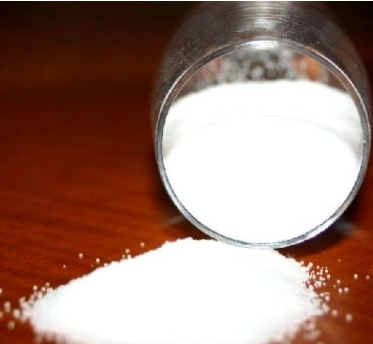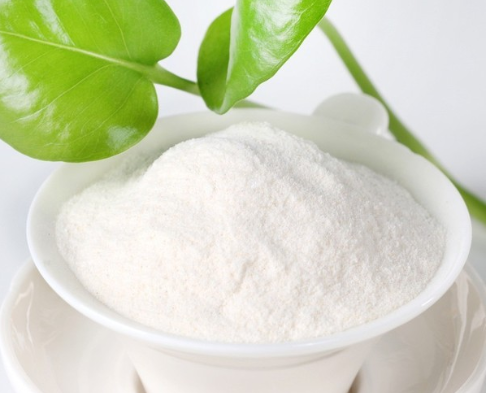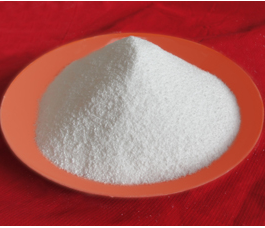Sodium propionate is the sodium salt of propionic acid that exists as colorless, transparent crystals or a granular crystalline powder. It is considered generally recognized as safe (GRAS) food ingredient by FDA, where it acts as an antimicrobial agent for food preservation and flavoring agent. Its use as a food additive is also approved in Europe. Sodium propionate is is prepared by neutralizing propionic acid with sodium hydroxide. Sodium propionate was previously approved in Canada as an active ingredient in Amino-Cerv (used to treat inflammation or injury of the cervix).
If sodium propionate is ingested or applied topically in an acid media, it becomes propionic acid. It oxidizes fatty acids, lowers pH values, and facilitates the citric acid cycle through interaction with coenzyme A. There has been evidence of heightened production of insulin in cows and sheep; the insulin later settles to an overall lower level.


Propionic acid inhibits 14CO2 production from palmitate in both control and methylmalonic fibroblasts; propionic acid also inhibited ureagenesis in rat liver slices. These findings may explain the fatty degeneration of the liver and hyperammonemia in propionic and methylmalonic acidemia. Propionic acidemia is an autosomal recessive disorder caused by a defect of propionyl–coenzyme A carboxylase. The main clinical findings are vomiting, lethargy, hypotonia, and metabolic ketoacidosis, and early clinical onset occurs during the neonatal period in ∼80% of the patients.







